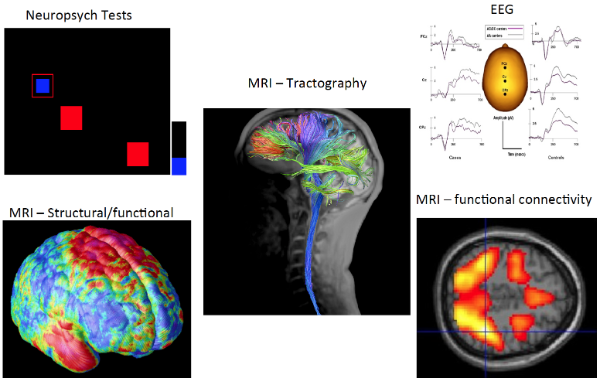-
Courses

Courses
Choosing a course is one of the most important decisions you'll ever make! View our courses and see what our students and lecturers have to say about the courses you are interested in at the links below.
-
University Life

University Life
Each year more than 4,000 choose University of Galway as their University of choice. Find out what life at University of Galway is all about here.
-
About University of Galway

About University of Galway
Since 1845, University of Galway has been sharing the highest quality teaching and research with Ireland and the world. Find out what makes our University so special – from our distinguished history to the latest news and campus developments.
-
Colleges & Schools

Colleges & Schools
University of Galway has earned international recognition as a research-led university with a commitment to top quality teaching across a range of key areas of expertise.
-
Research & Innovation

Research & Innovation
University of Galway’s vibrant research community take on some of the most pressing challenges of our times.
-
Business & Industry

Guiding Breakthrough Research at University of Galway
We explore and facilitate commercial opportunities for the research community at University of Galway, as well as facilitating industry partnership.
-
Alumni & Friends

Alumni & Friends
There are 128,000 University of Galway alumni worldwide. Stay connected to your alumni community! Join our social networks and update your details online.
-
Community Engagement

Community Engagement
At University of Galway, we believe that the best learning takes place when you apply what you learn in a real world context. That's why many of our courses include work placements or community projects.
Current Research
Current Research Activities
Cognitive, Genetics and Neuroimaging Research at NICOG

The University of Galway is home to a number of internationally recognised researchers and groups active in the fields of neuroimaging, cognitive neuroscience, and psychiatric genetics. This has resulted in a strong history of collaborative research funding (e.g. As funded by the Health Research Board and Irish Research Council) and research publications. This success has been based in part on the creation of large imaging and genetic datasets (e.g. as funded by the IRC, HRB and Wellcome Trust), positioning members of the center to participate in large international consortia (e.g. Enhancing Neuroimaging Genetics through Meta-Analysis – ENIGMA and PSYSCAN - Translating neuroimaging findings from research into clinical practice).
The two main research groups that currently constitute NICOG are:
Clinical Neuroimaging Laboratory
The Clinical Neuroimaging Laboratory was founded by Prof. Colm McDonald and Prof. Dara Cannon in 2006 (www.clinicalneuroimaginglaboratory.com). The lab has completed several projects both with locally acquired neuroimaging data from University College Hospital Galway, and through several collaborations with academic departments including the Institute of Psychiatry, London, the University of Cambridge, the Trinity College Institute of Neuroscience, Dublin and the National Institutes of Health in the USA. The laboratory's main research themes have focused on:
• Mapping of brain abnormalities associated with psychotic and affective disorders.
• The relationship of such brain abnormalities to genetic and environmental risk factors, cognition, course and treatment of illness.
• The association of structural and functional brain abnormalities with genotypic variation.
• The application of novel neuroimaging analysis methodologies, including diffusion tensor imaging tractography and network based analysis, to probing brain structural connectivity in patients with psychotic illness.
Cognitive Genetics and Cognitive Therapy Group
The Cognitive Genetics and Cognitive Therapy Group (CogGene) is co-led by Prof Donohoe and Prof. Morris. Originally established in 2009, the focus on the group, which currently consists of 12 researchers, is on characterising the effects of genetic risk variants for schizophrenia and related neuropsychiatric disorders. To do this the group employs neuropsychological, electrophysiological, and neuro-imaging techniques for investigating the role of gene function at the level of individual brain systems. As part of this work the group is also actively involved in developing psychological therapies for major mental health disorders, including therapies that address cognitive deficits in schizophrenia. Currently, the group is focused on:
• Understanding the contribution of genetic risk to social disability by measuring the effects of these variants on cortical and behavioural measures of social cognition.
• Investigating neural connectivity within the brain in terms of (1) structural connectivity: integrity of white matter tracts connecting different parts of the brain; (2) Functional connectivity: the correlation of activity between different parts of the brain; and (3) Effective connectivity: establishing the effect of one group of neurons on another.
• Establishing whether and how cognitive deficits associated with major psychiatric disorder can be ameliorated by behavioural interventions known as cognitive remediation therapy.
CURRENT RESEARCH PROJECTS
 PSYCHE is a 5-year programme funded by the Health Research Board (HRB), building on YOULEAD, knowledge, and partnerships which focuses on psychological interventions in youth mental health, with a particular emphasis on early psychosis. For further information please contact Prof Gary Donohoe
PSYCHE is a 5-year programme funded by the Health Research Board (HRB), building on YOULEAD, knowledge, and partnerships which focuses on psychological interventions in youth mental health, with a particular emphasis on early psychosis. For further information please contact Prof Gary Donohoe
 SOCIAbLE is a study of a new psychological intervention that uses virtual reality to help adults with experience of childhood adversity with their social thinking skills. For further information please email cathal.ocurraoin@ or emily.barrett@universityofgalway.ie
SOCIAbLE is a study of a new psychological intervention that uses virtual reality to help adults with experience of childhood adversity with their social thinking skills. For further information please email cathal.ocurraoin@ or emily.barrett@universityofgalway.ie
 Research Stream 4 - Digital mental health support for young people
Research Stream 4 - Digital mental health support for young people
This research stream undertakes a mixed methods and multi-level analysis approach to explore the factors which constrain and enable digital skills development and digital transformation in rural and peripheral regions in the west of Ireland (which span north and south- west and border regions). For further information please contact a.madridcagigal1@universityofgalway.ie
 VISTA: VISion To Action for promoting mental health and recovery. An Implementation Science approach to "Sharing the Vision" - Ireland's national mental health policy. For further information please contact leona.ryan@universityofgalway.ie
VISTA: VISion To Action for promoting mental health and recovery. An Implementation Science approach to "Sharing the Vision" - Ireland's national mental health policy. For further information please contact leona.ryan@universityofgalway.ie
SCOPE-BD
SCOPE-BD is a single-site, randomised, double-blind, placebo-controlled, parallel, phase IIb clinical trial, led by PI Dr. Brian Hallahan. The primary objective of the study is to investigate the efficacy of intravenous Scopolamine, compared to placebo, in reducing the severity of depressive episodes in individuals with bipolar disorder.
Inclusion Criteria: * Aged 18+ *Formal Diagnosis of Bi-polar disorder *Currently experiencing a depressive episode
Exclusion Criteria: * Diagnosis of intellectual disability (IQ <70), dementia or neurological problems *Current pregnancy or breastfeeding *Currently experiencing an episode of elation
For further information please contact brian.hallahan@universityofgalway.ie
COMPLETED RESEARCH PROJECTS
iRELATE is a European Research Council funded project examining the impact of genes, early life experiences and the immune system on the brain. There is growing evidence of an important contribution of each of these factors towards risk for schizophrenia and other mental health problems
(1) Does the effect of genes that are already known to increase illness risk occur because of changes in our immune system?
(2) Does our early social environment (e.g. our childhood relationships) modify this relationship?
To address these questions, iRELATE uses a combination of state of the art neuroimaging, cognitive testing and molecular and genetic techniques to examine differences in genes and immune function across research participants, and how these may affect the brain. Research is carried out across two sites:
- University Hospital Galway: HRB Clinical Research Facility
- St. James’s Hospital: Welcome Trust – HRB Clinical Research Facility and the Centre for Advanced Medical Imaging (CAMI) .
Prinicipal Investigator, iRELATE - Prof. Gary Donohoe - Professor & Established Chair of Psychology, University of Galway















